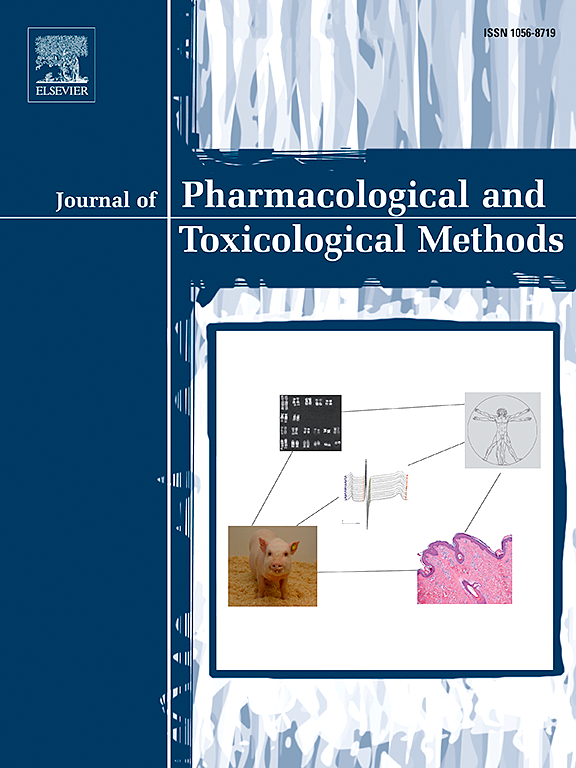Thermal shift assays in drug discovery – Troubleshooting from biochemical to cellular applications
IF 1.8
4区 医学
Q4 PHARMACOLOGY & PHARMACY
Journal of pharmacological and toxicological methods
Pub Date : 2025-07-03
DOI:10.1016/j.vascn.2025.108380
引用次数: 0
Abstract
Thermal shift assays (TSAs) have become valuable tools within drug discovery and development pipelines. These techniques detect direct physical interactions between small, drug-like molecules and their target proteins in biochemical and cellular settings. While there are several recent articles that outline TSA protocols and highlight their utility in drug discovery projects, this article aims to highlight common issues and solutions for challenges within cutting-edge TSAs. Herein, we have described three commonly used thermal stability assays, differential scanning fluorimetry (DSF), the protein thermal shift assay (PTSA) and the cellular thermal shift assay (CETSA), highlighting specific considerations for their use and implementation. We have also described frequently experienced challenges, including irregular melt curves, challenges with protein detection, and the impacts of buffer and test compounds on TSA performance. Overall, this troubleshooting guide serves to complement established methods and protocols to make TSAs more accessible and of greater use to the scientific community. We believe this will facilitate the use of thermal stability assays in biochemical (cell-free) and biological (cell-based) settings within drug discovery projects and support researchers seeking to develop the next-generation of therapeutic agents.
药物发现中的热移试验。从生物化学到细胞应用的故障排除
热移分析(tsa)已成为药物发现和开发管道中的宝贵工具。这些技术在生化和细胞环境中检测药物样小分子及其靶蛋白之间的直接物理相互作用。虽然最近有几篇文章概述了TSA协议,并强调了它们在药物发现项目中的效用,但本文旨在强调尖端TSA中常见的问题和挑战的解决方案。在这里,我们描述了三种常用的热稳定性测定法,差示扫描荧光法(DSF),蛋白质热移测定法(PTSA)和细胞热移测定法(CETSA),强调了它们的使用和实施的具体考虑因素。我们还描述了经常遇到的挑战,包括不规则的熔体曲线,蛋白质检测的挑战,以及缓冲液和测试化合物如何影响TSA性能。总的来说,本故障排除指南是对现有方法和协议的补充,使tsa更容易获得,并对科学界有更大的用处。我们相信这将有助于在药物发现项目中的生化(无细胞)和生物(基于细胞)环境中使用热稳定性测定,并支持研究人员寻求开发下一代治疗剂。
本文章由计算机程序翻译,如有差异,请以英文原文为准。
求助全文
约1分钟内获得全文
求助全文
来源期刊

Journal of pharmacological and toxicological methods
PHARMACOLOGY & PHARMACY-TOXICOLOGY
CiteScore
3.60
自引率
10.50%
发文量
56
审稿时长
26 days
期刊介绍:
Journal of Pharmacological and Toxicological Methods publishes original articles on current methods of investigation used in pharmacology and toxicology. Pharmacology and toxicology are defined in the broadest sense, referring to actions of drugs and chemicals on all living systems. With its international editorial board and noted contributors, Journal of Pharmacological and Toxicological Methods is the leading journal devoted exclusively to experimental procedures used by pharmacologists and toxicologists.
 求助内容:
求助内容: 应助结果提醒方式:
应助结果提醒方式:


